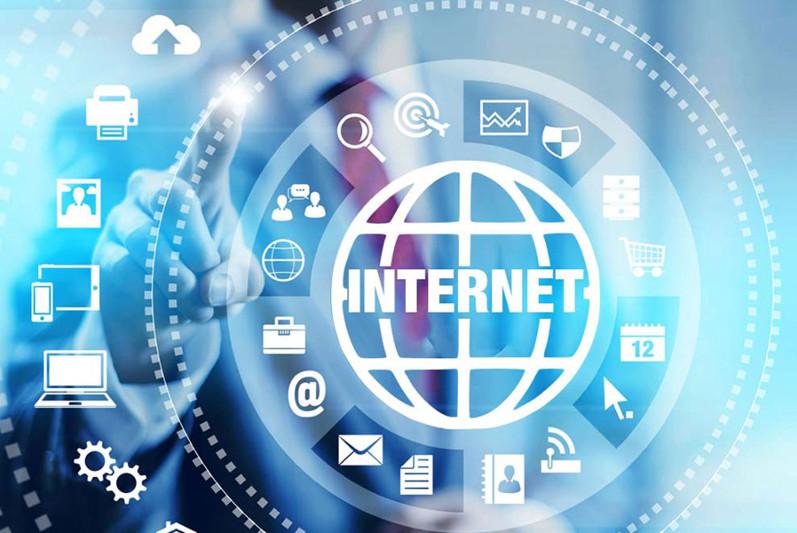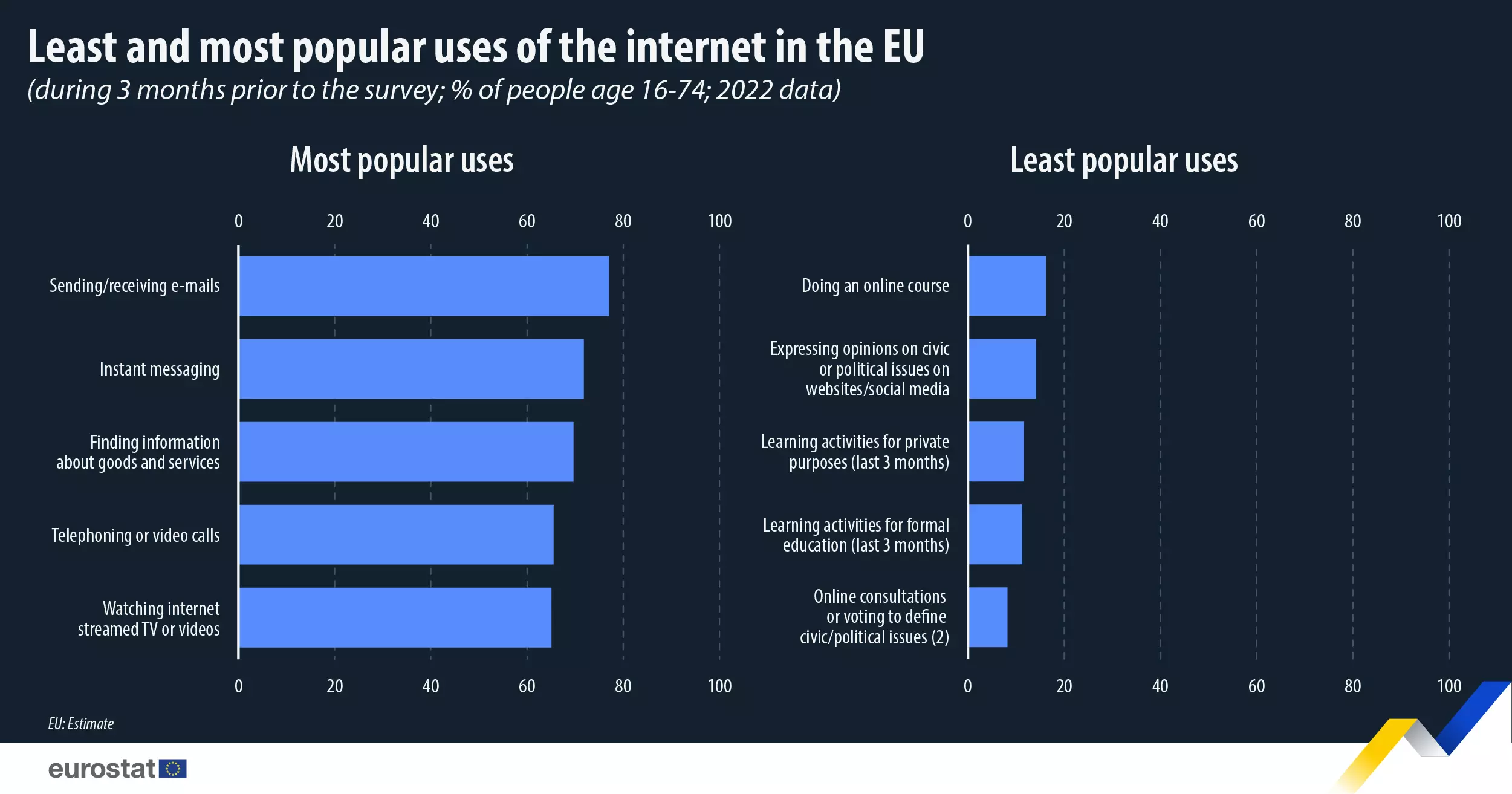The Internet has long become one of the key elements of human life. Today, it is widely available on smartphones and other mobile devices. Therefore, some may get the impression that it is difficult to live without the Internet.
According to Eurostat , in 2022, 90% of EU residents aged 16 to 74 used the Internet in the last 3 months. This share ranged from 79% in Bulgaria to 98% in Luxembourg. In recent years, the use of the Internet in EU countries has grown rapidly – in 2010 it was 67%, and in 2015 – 78% of the population.
In 2022, the Internet was mainly used to communicate with other people, send/receive e-mails (77%), exchange instant messages (72%), search for information about goods and services (70%), make voice or video calls (66%) and watching streaming TV or videos online (65%).
Most people also used the Internet to read informational websites and online newspapers (64%), watch video content from commercial or exchange services (61%), conduct banking transactions (60%), communicate in social networks (58%) and listen music (54%).
At the EU level, in 2022, 52% of people reported using the internet to search for health information. However, 33% said they used it to make an appointment with a practitioner through the website. 24% accessed personal medical records online and another 18% used the internet to access other health services through a website or app instead of going to a hospital or seeing a private doctor.
Source: https://mediasat.info/

